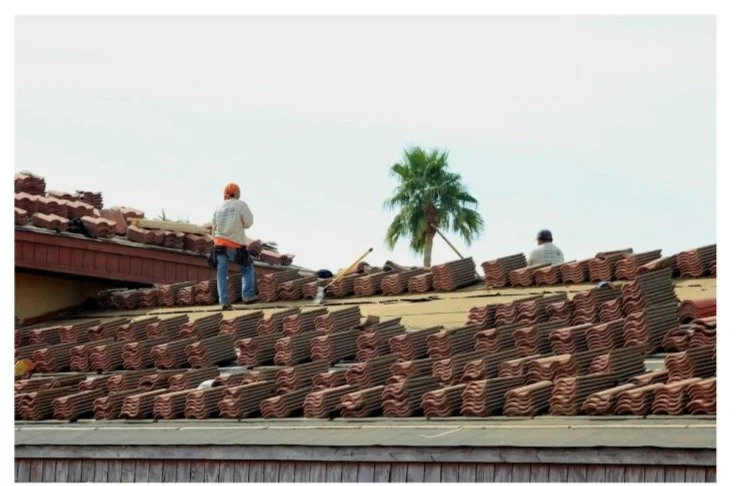15 Common Mistakes Damaging Your Home's Plumbing
Maintaining your home's plumbing can often be overlooked, but it’s essential for a healthy and safe house. Small mistakes in plumbing habits can quickly turn into costly repairs and water damage. Discover 15 common mistakes that can damage your home's plumbing. Learn expert tips from an Anaheim CA plumber to keep your system running smoothly.
Neglecting Regular Plumbing Maintenance
Importance of Routine Inspection and Cleaning
Scheduling regular checkups helps catch leaks, corrosion, and slow drains early. A quick peek under sinks or in the basement can reveal issues before they turn serious. It’s easier and cheaper to fix small problems than deal with major repairs later.
Common Maintenance Tasks Homeowners Can Do
Flush your water heater once a year to remove sediment.
Clear minor drain clogs with a plunger or drain snake.
Check water pressure with a gauge; ideal pressure is typically between 45-60 psi.
Consequences of Neglect
Ignoring routine care can lead to burst pipes or skyrocketing water bills. Over time, build-up of debris or corrosion damages pipes, shortening their lifespan.
Disposing of Inappropriate Materials Down Drains
What Not to Flush or Pour
Many things seem harmless but can cause major clogs—grease, coffee grounds, wipes, sanitary products, and chemical cleaners top the list. Statistically, more than 80% of drain clogs are caused by misuse.
Impact of Chemical Drain Cleaners
Chemical cleaners often damage pipes and pose health hazards. They can eat away at your plumbing, especially with repeated use. Instead, try enzyme-based cleaners or mechanically snaking the drain.
Tips for Proper Waste Disposal
Always throw food scraps in the trash.
Educate family members about what’s safe to drain.
Use trash bins for non-degradable waste to protect plumbing and the environment.
Over-tightening Plumbing Connections
Why Tightening Doesn't Always Mean Better
Over-tightening fittings can crack pipes or strip threads, leading to leaks. It’s tempting to tighten until secure but doing so can cause more harm than good.
Recognizing When to Stop
Use the right tools and tighten fittings just enough until snug. If you feel excessive resistance or see damage, stop immediately.
Expert Advice
Professional plumbers recommend tightening fittings by hand first, then a slight turn with a wrench. Always follow manufacturer instructions for specific fittings.
Ignoring Signs of Leaks and Drips
Common Indicators of Plumbing Issues
Notice rising water bills, mold, or discoloration? Hear a constant drip? These signals point to hidden leaks. Ignoring them leads to bigger problems.
Long-term Damage Caused by Leaks
Persistent leaks weaken structural elements, promote mold, and rot wood. For example, a small drip under the sink, if ignored for months, can cause mold growth and decay the cabinet.
Actionable Steps
Turn off water immediately if you detect a leak.
Contact a plumber if you're unsure how to fix the issue.
Regularly check under sinks and around fixtures for signs of trouble.
Using the Wrong Plumbing Fixtures and Materials
Impact of Low-Quality or Incorrect Parts
Cheap or incompatible fixtures tend to leak faster and break easily. Over time, they may cause damage to your plumbing system.
Choosing Suitable Fixtures
Opt for materials like PVC, copper, or PEX based on your needs. Each has pros and cons; a professional plumber can guide your choice.
Expert Recommendations
High-quality fixtures last longer and reduce the chance of leaks. Always select respected brands and ensure compatibility with existing plumbing.
Overloading Garbage Disposals
Common Misuses
Frying with fibrous foods, putting bones, coffee grounds, or non-food debris can overload your disposal. These habits stress the motor and cause clogs.
Effects on the System
Overuse can burn out the motor, corrode parts, or cause backups. A clogged disposal might also damage connected pipes.
Proper Disposal Practices
Feed soft foods slowly and in small amounts.
Regularly clean your disposal with a mix of ice and lemon.
Avoid putting non-food items or large amounts of fibrous foods down the drain.
Ignoring Water Pressure Problems
Signs of Excessively High or Low Water Pressure
Hammering pipes, slow fixtures, or inconsistent flow indicate pressure issues. Too high pressure can stress pipes; too low, results in poor water flow.
Causes and Risks
Old pipes, faulty pressure regulators, or municipal supply issues can be at fault. Excessive pressure leads to pipe leaks and breakage.
Solutions
Use a pressure regulator to control flow.
Have a professional assess your system.
Regularly check your pressure with a gauge.
DIY Repairs Without Proper Knowledge
Risks of Improper Fixes
Tinkering without expertise may worsen the problem or cause new leaks. You might void warranties or damage expensive fixtures.
When to Seek Professional Help
Complex leaks, sewer backups, or pipe replacements should be handled by licensed plumbers. Do not attempt major repairs on your own.
Tips for Safe DIY Plumbing
Learn basic repairs like tightening fittings or replacing washers.
Use trusted online tutorials and manuals.
Know your limits—call a pro for complicated issues.
Relying on Temporary Fixes
Common Quick Fixes
Sealants or duct tape might seem like quick solutions but rarely last. They often only delay proper repairs.
Why Temporary Fixes Fail
Underlying issues like broken pipes or root intrusions remain. Temporary patches can fail unexpectedly, causing water damage.
Recommended Approach
Plan to get permanent repairs from licensed plumbers. Temporary fixes should only serve as short-term solutions.
Poor Pipe Insulation and Exposure
How Exposure Leads to Damage
Uninsulated or exposed pipes freeze in winter, burst, and cause flooding. They also suffer from corrosion if left unchecked.
Insulation Solutions
Use foam pipe insulation or heating tape in cold areas. Proper insulation keeps water flowing and prevents costly repairs.
Home Environment Considerations
Insulate pipes in attics, basements, and outside walls. Check for exposed pipes yearly and add insulation as needed.
Incorrect Use of Drain Cleaners
Dangers of Harsh Chemical Cleaners
They can eat away at pipes, especially older or plastic ones, and release dangerous fumes. These cleaners are often more harmful than helpful.
Safer Cleaning Methods
Mechanical snaking clears clogs without chemicals. Enzymatic cleaners gradually break down organic blockages.
Expert Advice
Only use chemical cleaners as a last resort. Regular maintenance and mechanical cleaning are safer long-term solutions.
Ignoring Plumbing Codes and Regulations
Legal and Safety Implications
Building codes ensure your system is safe and lasts long. Violating these codes can lead to fines or voided warranties.
Common Violations
Using incorrect pipe materials or venting improperly could cause health hazards or system failures.
Ensuring Compliance
Always hire licensed plumbers who follow local codes. Get necessary permits and inspections to keep everything legal and safe.
Failing to Address Root Causes of Plumbing Problems
Symptom vs. Cause
Quick fixes might hide leaks or backups but don’t fix the real problem. Address root issues for lasting solutions.
Examples
Tree roots can invade pipes and cause backups. Corroded fittings leak repeatedly if not replaced.
Prevention Strategies
Schedule professional inspections and maintain trees away from underground pipes. Fixing the root cause prevents recurring problems.
Not Tracking or Monitoring Water Usage
Hidden or Excessive Water Consumption
Leaks can waste hundreds of gallons if unnoticed. Installing water meters or leak detectors can help track usage.
Benefits
Early detection saves money and prevents major damage. Smart meters alert you to unusual water activity.
Practical Tips
Install leak detection devices in key areas.
Review monthly water bills for unexplained increases.
Fix leaks promptly to conserve water and money.
Conclusion
Avoiding these common plumbing mistakes can greatly extend the life of your home’s pipes. Regular inspections, proper waste disposal, and seeking professional help when needed are key. Stay vigilant, fix issues early, and keep your plumbing in top shape. Small actions today can prevent big, costly problems tomorrow.



